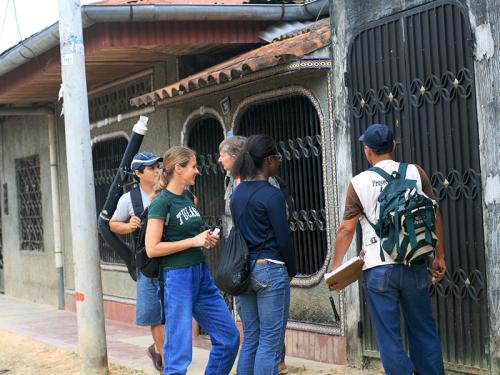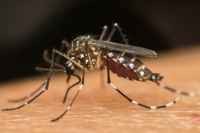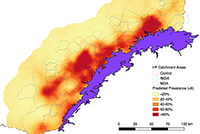
The spread of mosquito-borne illnesses is a growing problem due to warming temperatures -- including in parts of the world that have traditionally not fallen into tropical designations.
That makes the study and prevention of such illnesses more of a pressing local problem than it had been previously.
Aedes aegypti mosquitoes are the vectors of arboviruses causing infectious diseases such as dengue, chikungunya, Zika, and yellow fever, and they represent a serious public health burden worldwide.
An increase in dengue cases last year underlines the severity of the problem. Approximately half of the world’s population is now at risk of dengue, according to the World Health Organization (WHO).
Researchers at the Celia Scott Weatherhead School of Public Health and Tropical Medicine are working to gain insight into the behavior and physiology of mosquitoes to provide a better roadmap toward discovering better disease prevention methods.
Tulane has an established center, the Vector Borne Infectious Diseases Research Center, dedicated to this research.
In addition, Department of Tropical Medicine and Infectious Disease researchers such as Dr. Berlin Londoño-Renteria are pushing for greater commitment toward developing vaccines to combat such illnesses.
“We discovered and approved a treatment for COVID vaccine in less than two years,” Londoño-Renteria said. “I think it is time to do the same for these [mosquito-borne] diseases that are affecting a significant number of people worldwide.”



